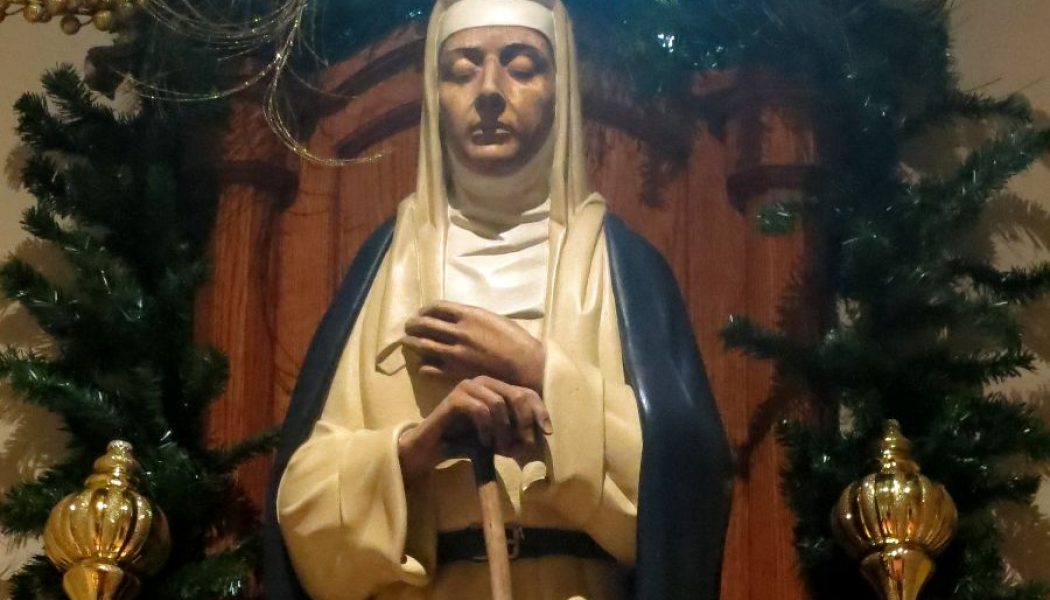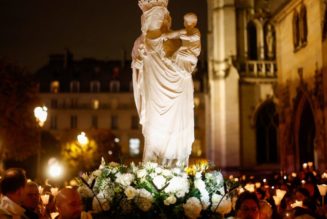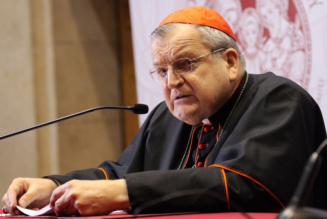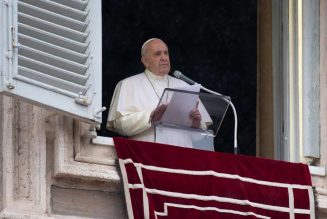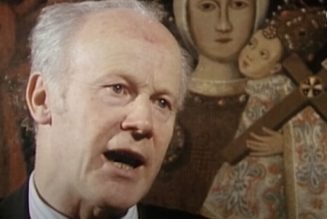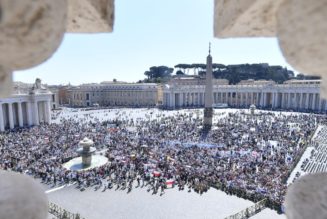_-_Blessed_Margaret_of_Castello_statue.jpg?jpg)
To thank her neighbors for raising her, she opened a small school, where she taught children the Psalms, which she had learned by heart, and instructed them in the Catholic faith.
She died in 1320, at the age of 33, and was buried inside the church, where her tomb quickly became associated with miracles.
Pope Paul V declared her Blessed by equivalent beatification in 1609.
Candidates for equipollent canonization must meet three criteria. They must be the subject of a long-standing cult. They should have a solid and enduring reputation for virtue. They must also have a long association with miracles.
While there were few equipollent canonizations in the 20th century, Benedict XVI declared Hildegard of Bingen a saint via the procedure in 2012.
Pope Francis has used the process relatively frequently. Saints made by equivalent canonization since his election include Angela of Foligno and Peter Faber in 2013, José de Anchieta, Marie of the Incarnation, and François de Laval de Montmorency in 2014, and Bartholomew of Braga in 2019.
During Saturday’s meeting with Semeraro, the pope also authorized the Congregation for the Causes of the Saints to promulgate a decree recognizing the heroic virtues of the Argentine millionaire Enrique Shaw.
Shaw was born in Paris, France, in 1921, and emigrated to Argentina, where he established himself as a businessman of outstanding integrity. He founded the Christian Association of Business Executives in 1952 and sought to apply Catholic social teaching in the workplace. He died in Buenos Aires, Argentina, in 1962.
Pope Francis oversaw the diocesan phase of Shaw’s cause while he was serving as archbishop of the Argentine capital.
The pope praised Shaw in a 2015 interview with the Mexican television station Televisa.
He said: “Enrique Shaw was rich, yet saintly. A person can have money. God gives it to him so he can administer it well, and this man administered it well.”
The pope added that Shaw used his wealth “not with paternalism, but by fostering the growth of people who needed help.”
The decree means that Shaw can now be referred to as “Venerable.”
Heroic virtue is one of the requirements for beatification in the Catholic Church. A verified miracle attributed to the candidate’s intercession is also usually required.
Pope Francis also authorized a decree Saturday recognizing the martyrdoms of 12 members of the Redemptorists religious congregation killed during the Spanish Civil War.
He formally acknowledged that Vincenzo Nicasio Renuncio Toribio and his 11 companions were killed in hatred of the faith in the Spanish capital, Madrid, in 1936.
In addition, the pope approved decrees recognizing the heroic virtues of four other candidates for canonization:
• Cardinal Pietro Marcellino Corradini (1658-1743), the bishop of the Italian diocese of Frascati who founded the Collegine Sisters of the Holy Family, providing religious instruction for girls.
Join Our Telegram Group : Salvation & Prosperity
